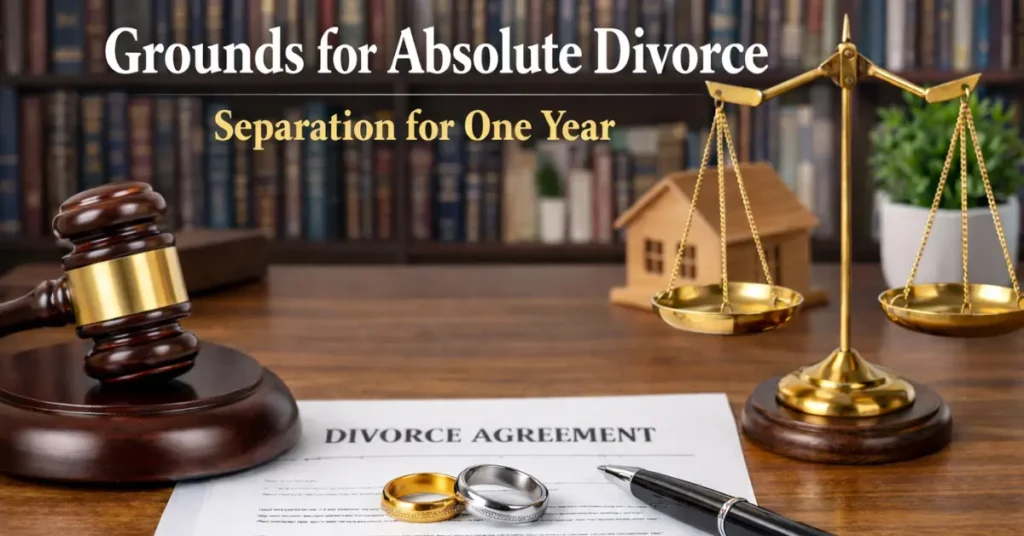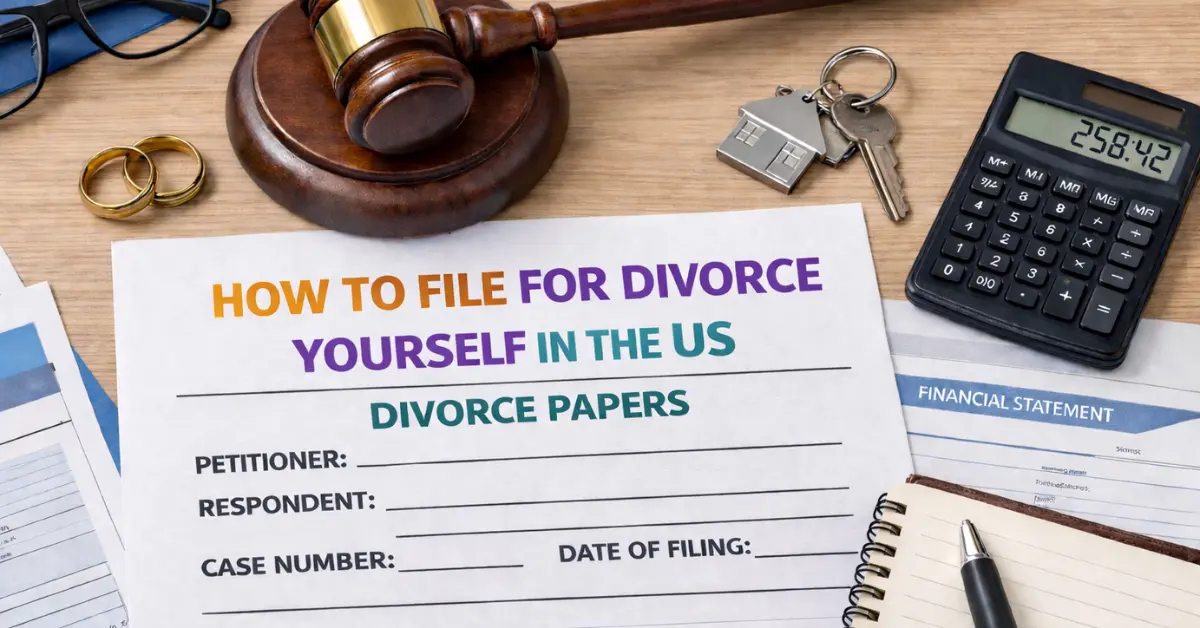Divorce in North Carolina follows a clear legal structure. To understand how the process works, it is important to know the grounds for divorce, whether the case is based on a no-fault separation or fault-based conduct.
Many people are surprised to learn that North Carolina law treats divorce differently from many other states. In particular, the distinction between absolute divorce and divorce from bed and board plays a major role in how a case moves forward.
This article explains the legal grounds for divorce in North Carolina, reflects the law as it currently stands, and provides practical clarity for anyone trying to understand the process.
Legal Grounds for Divorce in North Carolina
Under North Carolina law, there are two legally recognized forms of divorce:
Absolute Divorce
This type of divorce legally ends the marriage. Once finalized, both spouses are free to remarry.
Divorce from Bed and Board
This is a fault-based legal separation. It does not dissolve the marriage but allows the court to formally separate the spouses due to serious misconduct.
Both options fall under N.C. Gen. Stat. § 50-6, which governs divorce eligibility and requirements in the state.

Grounds for Absolute Divorce
Separation for One Year
The most common ground for divorce in North Carolina is one full year of continuous separation, which plays a central role in the North Carolina divorce timeline.
The law requires that spouses:
- Live in separate residences
- Remain physically separated
- Have no intent to resume the marriage
Even a short period of reconciliation can restart the waiting period. This strict rule is why many people ask about the North Carolina 12-month divorce rule, which explains why the state requires such a long separation before granting an absolute divorce.
Incurable Insanity
North Carolina also allows divorce when one spouse has been institutionalized for incurable insanity for at least two consecutive years.
This ground requires:
- Medical documentation
- Proof of continuous confinement
- Evidence that recovery is unlikely
Although rare, the law recognizes this option to address long-term and irreversible circumstances.

Grounds for Divorce from Bed and Board
Divorce from bed and board applies when one spouse’s behavior makes marital life unsafe or impossible. Courts look closely at fault-based conduct, including:
Abandonment
When one spouse leaves the marital home without justification and with no intention to return.
Malicious Turning Out
When a spouse is forced out of the marital residence without legal cause.
Cruel or Barbarous Treatment
Physical abuse or conduct that places the other spouse in danger. Courts take these claims seriously and often act quickly.
Indignities
Repeated humiliation, verbal abuse, or degrading behavior that causes mental or emotional harm.
Excessive Drug or Alcohol Abuse
Ongoing substance abuse that disrupts family life or creates a hostile environment.
Adultery
While adultery alone does not grant an absolute divorce, it is considered marital misconduct and can strongly influence separation rulings, alimony decisions, and property division in a divorce in North Carolina.
Practical Courtroom Insight
While observing family court proceedings in North Carolina, one pattern becomes clear: judges consistently return to statutory requirements rather than emotional arguments.
Family law attorney John Doe, who regularly practices in North Carolina courts, explains that:
“Most divorce cases rise or fall on whether the legal requirements are met. Fault matters most when it affects separation, spousal support, or credibility, not when emotions alone are involved.”
This reflects how courts apply the law in real cases, not just how it appears on paper.
Steps for Filing for Divorce Based on Grounds
Filing Requirements
To begin a divorce, a spouse must file a formal complaint in the appropriate county and meet North Carolina residency requirements.
Documentation and Evidence
Depending on the grounds, courts may require:
- Proof of separation
- Medical records
- Witness statements
- Financial disclosures
Clear documentation helps avoid delays and procedural issues.
Legal Guidance
While this article is informational, many people seek legal advice when navigating fault-based claims or disputes involving alimony in North Carolina, custody, or asset division.

Legal and Financial Considerations
Property Division
North Carolina follows equitable distribution, meaning marital property is divided fairly, not automatically equally.
Spousal Support
Alimony decisions depend on income, length of marriage, and marital misconduct. Fault-based behavior can significantly affect outcomes.
Child Custody and Support
When children are involved, courts focus on stability and the child’s best interests above all else.
Are These Divorce Laws Still Current?
Yes. As of the most recent application of N.C. Gen. Stat. § 50-6, North Carolina has not made major statutory changes affecting:
- The one-year separation rule
- Fault-based separation grounds
- The structure of absolute divorce
Courts continue to apply these rules consistently.
Conclusion
Understanding the grounds for divorce in North Carolina allows individuals to approach the process with clarity rather than confusion.
Whether a case involves a no-fault separation or serious marital misconduct, North Carolina law provides a defined legal path. Knowing how these rules work helps people prepare realistically for what the court will and will not consider.
Legal Disclaimer
This article is for informational purposes only and does not constitute legal advice. Divorce laws can vary based on individual circumstances. For guidance specific to your situation, consult a licensed North Carolina family law attorney.




